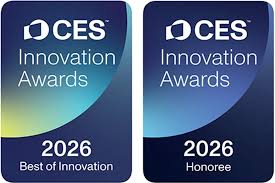The Formal Operational Stage: Everything You Need to Know

Jean Piaget said in his theory of cognitive development that the brain goes through four stages. The last stage is the formal operational stage which starts at 12 years and develops throughout adulthood. It might confuse some; however, this is an important developmental stage the body goes through. So, what do you need to know about the formal operational stage?
Understanding the Fourth Stage
Your thinking skills move to the next level. These skills are more sophisticated and advanced; typically, logic can be applied to solutions. It is also the time when you can think about theoretical concepts, such as:
- Deductive Reasoning
- Logical Thoughts
- Systematic Planning
These are the type of skills developed during the Formal Operational Stage, and each is unique and crucial for the individual.
Jean Piaget and the Research Stage
Extensive research was carried out by Jean Piaget to support his theory. During his research, he came up with two viable elements of the fourth stage.
- Physical Conceptualization
- Abstraction of Thought
So, balance was used for physical conceptualization. He created an exam where children were asked to balance scales. In his research, Jean Piaget found that children around 12-13 years old were able to successfully place the weights on the scales. Most used logic deduction and reasoning to achieve the proper balance.
In comparison, children around 10, often relied on the method of trial and error. 7-year-olds didn’t think about the weight placements and just applied weights to both sides of the scale. Younger children couldn’t complete the test.
Piaget’s second test focused on the abstraction of thought. Children were tasked to determine where they would place a third eye if they had one. Younger children often picked the forehead as their chosen place for the third eye. In comparison, older children selected the back of their heads.
While the tests were very simplistic, they unleashed creativity within a child. The answers were the result of hypothetical and abstract thinking.
Formal Operational Stage Skills
There are several skills to watch for with cognitive development; those include:
- Deductive Reasoning and Logic: It focuses on broader terms. So, a child will find solutions using general reasoning and logic. These skills are often used in Math and Science.
- Abstract Thought: This focuses on abstract ideas and the possible outcomes. You are challenged to think outside the box to find a solution to a problem. It’s a useful skill to have when it comes to planning long-term goals.
- Simple Problem Solving: This is when a person uses a logical approach. It focuses on the person’s ability to problem solve using a basic solution.
- Hypothetical Deductive Reasoning: This is a skill where the mind focuses on the what-ifs. The mind uses deductive reasoning to find ways to solve hypothetical solutions.
Final Thoughts
The developing brain goes through different stages of cognitive development. The fourth and final stage is the Formal Operation Stage, according to Jean Piaget. He believes people can use formal operational thinking to find simple solutions to complex problems. Abstract and creative thinking are often used too.






